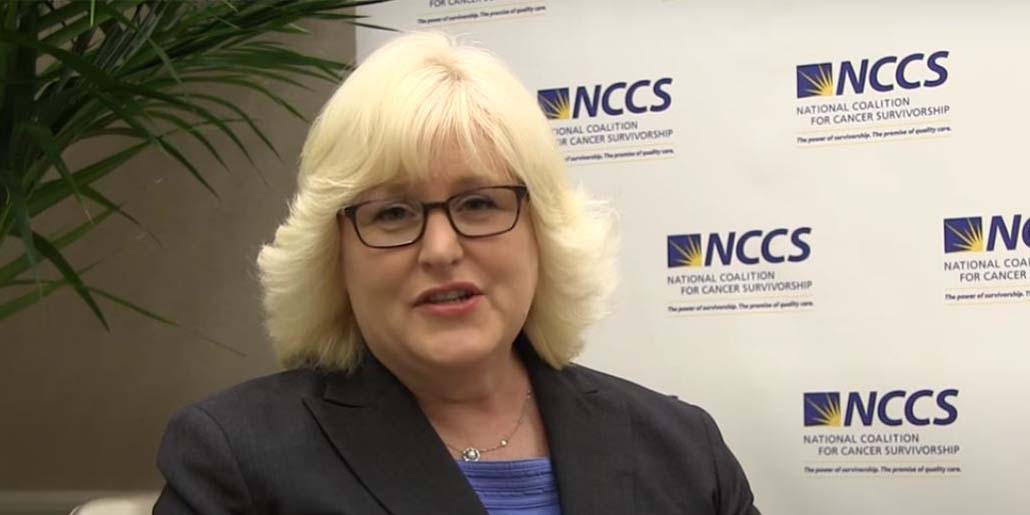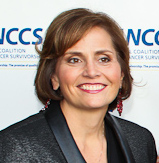
Focus on the Care Video: Palliative Care and Living Well with Cancer
Last week we noted two recent articles addressing palliative and end of life care issues, including an article written from the first-hand experience of Amy Berman, who is both a nurse and an individual living with cancer. In Amy Berman's recent post on the Health Affairs Blog, she describes palliative care as the "best ...

When Talking About the End of Life, Honesty and Words Matter
I attended two different events in Washington, DC this week where the focus was on end-of-life care and the challenges of ensuring that people have quality care and dignity at the end of their life. First was the U.S. Senate Special Committee on Aging roundtable meeting entitled, “Continuing the Conversation: The ...

ACOs and Delivering Care for Older Adults: Two Recent Articles That Caught Our Attention
"What We Can Learn by Listening to Older Adults" Chris Langston, a program director at the John A. Hartford Foundation, penned a recent Prepared Patient Blog post that resides on the Center for Advancing Health (CFAH) website. It refers to what many of us have learned from our work in patient advocacy which points ...

Amy Berman’s Perspective of Palliative Treatment Highlights Issues in “Triple Aim” Approach to Health Care Delivery
If you already know of Amy Berman, have heard her story, or have been fortunate enough to have spent time with her, you will read more about what words like "patient centered" and "choosing wisely" look like when carried out to treat metastatic cancer. And you will also be exposed to ...

New York Times Opinion Piece Describes Common Disparities in Communication and Comprehension
On February 8, a New York Times opinion piece published online describes a common situation where the disparities in communication and comprehension of clinical information from doctor to patient may have adverse consequences for patients. The author, Theresa Brown is an an oncology nurse, and she points out that not only can ...

NCCS Responds to Dr. Don Dizon’s “The Awakening of the e-Patient” Commentary
In his ASCO Connection commentary, " The Awakening of the e-Patient: Are We Prepared to Engage?" Dr. Don Dizon confirms from the provider perspective what we at NCCS know to be true: patients want to be engaged in decision-making about their care, especially for a serious diagnosis like cancer. Dr ...

New Rule Announced by HHS Secretary Kathleen Sebelius Aims to Empower Patients
The empowered patient is a phrase that is often used to suggest a variety of activities that patients can engage in to allow their sense of access and control in certain situations to emerge. This sometimes overused phrase seems particularly interesting to people with cancer who often report that waiting ...

“We Are Giving Ourselves Cancer” Op Ed: Consequences of Radiation from Medical Imaging
In a January 31st New York Times Op Ed, Drs. Rita Redberg and Rebecca Smith-Bindman of UCSF Medical Center report on how the increased uses of medical technologies for diagnosing, treating, and monitoring diseases like cancer, are contributing to unprecedented exposures to radiation. The consequences of these exposures is well ...

IOM Releases “Partnering with Patients” Meeting Summary
The Institute of Medicine released a meeting summary today of a workshop that took place in February, "Partnering with Patients to Drive Shared Decisions, Better Value, and Care Improvements." A short video capturing the key messages of the workshop, and including the voice of patients, has also been released. In ...

Do Oncologists Lie to Their Patients About Their Prognoses?
In a blog in Forbes, Peter Ubel asks, “Do Oncologists Lie to Their Patients About Their Prognoses?” Ubel shares a case study in which an oncologist gave a patient a false and overly optimistic estimate of his chance for remission. He says of the doctor’s action, “The oncologist’s behavior that ...

